Frontier markets
A frontier market is a type of developing country which is more developed than the least developing countries, but too small to be generally considered an emerging market. The term is an economic term which was coined by International Finance Corporation’s Farida Khambata in 1992. The term is commonly used[1] to describe the equity markets of the smaller and less accessible, but still "investable", countries of the developing world. The frontier, or pre-emerging equity markets are typically pursued by investors seeking high, long-run return potential as well as low correlations with other markets.[2] Some frontier market countries were emerging markets in the past, but have regressed to frontier status.[3][4]
Terminology
The term began use when the IFC Emerging Markets Database (EMDB), led by Farida Khambata, began publishing data on smaller markets in 1992. Khambata coined the term “Frontier Markets” for this set of indices. Standard and Poor's bought EMDB from IFC in 1999 and in October 2007, S&P launched the first investable index, the Select Frontier Index (30 of the largest companies from 11 countries) and the Extended Frontier Index (150 companies from 27 countries0.[5] Subsequently, MSCI Barra began a rival frontier market index,[6] and in early 2008, Deutsche Bank launched the first frontier market exchange-traded fund, on the London Stock Exchange.[7] Frontier markets are a sub-set of emerging markets, which have market capitalizations that are small and/or low annual turnover and/or market restrictions unsuitable for inclusion in the larger EM indexes but nonetheless "demonstrate a relative openness to and accessibility for foreign investors" and are not under "extreme economic and political instability."[6]
Members could be considered to fall roughly into three groups:
- Small countries of relatively high development level (such as Estonia) that are too small to be considered emerging markets,
- Countries with investment restrictions that have begun to loosen as of the mid 2000s (such as the countries of the Gulf Cooperation Council)
- Countries at a lower development level than the existing "mainstream" emerging markets (such as Kenya or Vietnam).
The term pre-emerging markets is sometimes used as a synonym for "frontier markets", emphasizing the expectation that they will eventually "graduate" to "emerging market" status.
Investment case
Frontier Markets have lower market capitalization and liquidity than the more developed, "traditional" emerging markets. The frontier equity markets are typically pursued by investors seeking high, long term returns and low correlations with other markets[8][9][10]
The implication of a country being labeled as Frontier is that, over time, the market will become more liquid and exhibit similar risk and return characteristics as the larger, more liquid developed emerging markets.
Emerging market / frontier investors say investing in frontier assets would actually diversify and reduce risk, which contradicts the general notion that risk would be added by including those markets.[11] Well known investors include Thomas Hugger[12][13] of Asia Frontier Capital Ltd., Douglas Clayton of Leopard Capital.
Those who have a focus on frontier markets have different views on what the future holds for the inter-correlation of countries within the asset class. Whilst they share some economics characteristics such as young, increasing educated populations the individual economies face different internal and external forces. Funds such as Asia Frontier Capital invest to find returns in countries that have increasing trends in domestic consumption but see the overall growth drivers for each country as being different.[14][15] This investment thesis holds water as it is unlikely that a manufacturing based economy, such as Bangladesh, would respond in the same way to external shocks as an island nation where a large proportion of the economy is linked to tourism, such as Sri Lanka.
Other investors such as DaMina Advisors, the leading global Africa-focused frontier markets risk analysis firm has argued since 2010 that fundamentally all the world’s last remaining frontier capital markets in Africa, Latin America and Asia will become synchronized – just as the globally and culturally disparate largest emerging markets of Brazil, India, China and Russia have become. InFrontier is the first international private equity firm with a full-time team and investments in Afghanistan [16] co-founded by Benj Conway and Felix von Schubert.
There are also other non managed ways to gain exposure to these markets that are more generic such as investing in frontier market indices such as MSCI Frontier Index that only invest in large liquid stocks.
FTSE list
FTSE classification, as of September 2014 frontier markets list:[17]
MSCI list
As of June 2013, MSCI classified the following 26 countries as frontier markets:[18]
The following countries are currently not included in MSCI Frontier Markets Index, and adding them to this list - is still under consideration (as of May 2010):
Standard & Poor's list
As of September 19, 2011, Standard & Poor's classified the following 36 countries as frontier markets:[19]
-
 Argentina
Argentina -
 Bahrain
Bahrain -
 Bangladesh
Bangladesh -
 Botswana
Botswana -
 Bulgaria
Bulgaria -
 Côte d'Ivoire
Côte d'Ivoire -
 Croatia
Croatia -
 Cyprus
Cyprus -
 Ecuador
Ecuador -
 Estonia
Estonia -
 Ghana
Ghana -
 Jamaica
Jamaica -
 Jordan
Jordan -
 Kazakhstan
Kazakhstan -
 Kenya
Kenya -
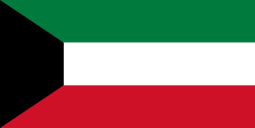 Kuwait
Kuwait -
 Latvia
Latvia -
 Lebanon
Lebanon -
 Lithuania
Lithuania -
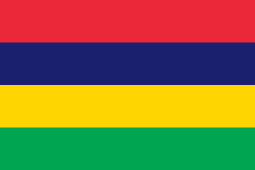 Mauritius
Mauritius -
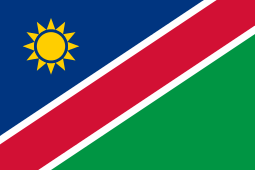 Namibia
Namibia -
 Nigeria
Nigeria -
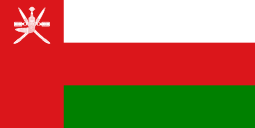 Oman
Oman -
 Pakistan
Pakistan -
 Panama
Panama -
 Qatar
Qatar -
 Romania
Romania -
 Slovakia
Slovakia -
 Slovenia
Slovenia -
 Sri Lanka
Sri Lanka -
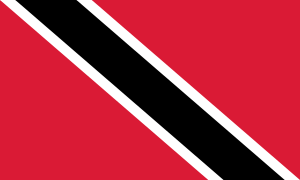 Trinidad and Tobago
Trinidad and Tobago -
 Tunisia
Tunisia -
 Ukraine
Ukraine -
 United Arab Emirates
United Arab Emirates -
 Vietnam
Vietnam -
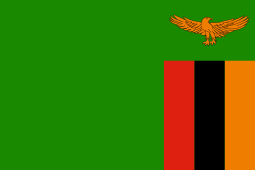 Zambia
Zambia
Colombia was promoted to Emerging market effective September 19, 2011[20]
Dow Jones list
As of September 2011, Dow Jones classified the following 30 countries to be frontier markets:[21]
Russell list
As of May 2013, Russell Investments considers the following countries frontier markets:[22]
-
 Argentina
Argentina -
 Bahrain
Bahrain -
 Bangladesh
Bangladesh -
 Botswana
Botswana -
 Bulgaria
Bulgaria -
 Croatia
Croatia -
 Cyprus
Cyprus -
 Egypt (June 2014)
Egypt (June 2014) -
 Estonia
Estonia -
 Gabon
Gabon -
 Ghana
Ghana -
 Jamaica
Jamaica -
 Jordan
Jordan -
 Kazakhstan
Kazakhstan -
 Kenya
Kenya -
 Kuwait
Kuwait -
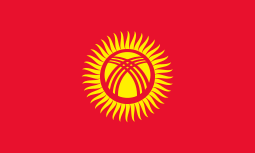 Kyrgyzstan
Kyrgyzstan -
 Lithuania
Lithuania -
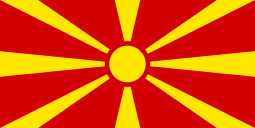 Macedonia
Macedonia -
 Malta
Malta -
 Mauritius
Mauritius -
 Namibia
Namibia -
 Nigeria
Nigeria -
 Oman
Oman -
 Pakistan
Pakistan -
 Papua New Guinea
Papua New Guinea -
 Qatar
Qatar -
 Romania
Romania -
 Serbia
Serbia -
 Slovakia
Slovakia -
 Slovenia
Slovenia -
 Sri Lanka
Sri Lanka -
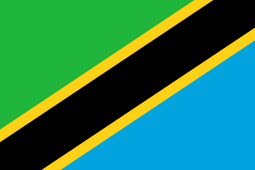 Tanzania
Tanzania -
 Trinidad and Tobago
Trinidad and Tobago -
 Tunisia
Tunisia -
 Ukraine
Ukraine -
 Vietnam
Vietnam -
 Zambia
Zambia
See also
References
- ↑ Frontier Markets: The new emerging emerging markets Doughroller
- ↑ Salamat, Rishaad (Oct. 20). "Investing in Cambodia, Haiti, Bangladesh, Laos". Bloomberg. Retrieved 21 May 2012. Check date values in:
|date=(help) - ↑ "MSCI will downgrade Argentina to frontier market - Emerging Markets Report - MarketWatch".
- ↑ "MSCI reclassifies stocks in emerging, frontier market indexes | Reuters". Reuters.
- ↑ "S&P Launches First Investable Index for Frontier Equity Markets" (Press release). Standard & Poor's. 2007-10-22.
- 1 2 "MSCI Frontier Markets Indices" (PDF) (Press release). MSCI Barra. 2007-12-18.
- ↑ Coleman, Murray (2008-02-14). "First Frontiers ETFs Open Overseas". Index Universe.
- ↑ Guerrero, Tomás (March 2013) Frontier Markets: A World of Opportunities
- ↑ Guerrero, Tomás (September 2013) Frontier Markets: Old Acquaintances, New Opportunities
- ↑ Guerrero, Tomás (May 2014). "Frontier Markets: More profitable, less volatile". Financial Times.
- ↑ According to Marek Ondraschek, Founder of Zurich-based ALNUA Investment Managers and former CEO & CIO of Swiss Life Asset in a video interview.
- ↑ https://www.youtube.com/watch?v=01yCh0OE0Gw
- ↑ http://citywireglobal.com/news/fund-managers-on-the-frontier-hidden-gems-in-untapped-markets/a687456?ref=citywire-global-latest-news-list
- ↑ http://video.cnbc.com/gallery/?play=1&video=3000192230
- ↑ "International diversification with frontier markets". Journal of Financial Economics. 101: 227–242. doi:10.1016/j.jfineco.2011.02.009.
- ↑ http://www.ft.com/cms/s/0/f8b4e5d2-1c1e-11e5-8201-cbdb03d71480.html
- ↑ See FTSE Global Equity Index Series Country Classification, September 2014
- ↑ MSCI International Equity Indices
- ↑
- ↑
- ↑ http://www.djindexes.com/mdsidx/downloads/brochure_info/Dow_Jones_Indexes_Country_Classification_System.pdf
- ↑ "Russell construction methodology" (PDF). Russell Investments.